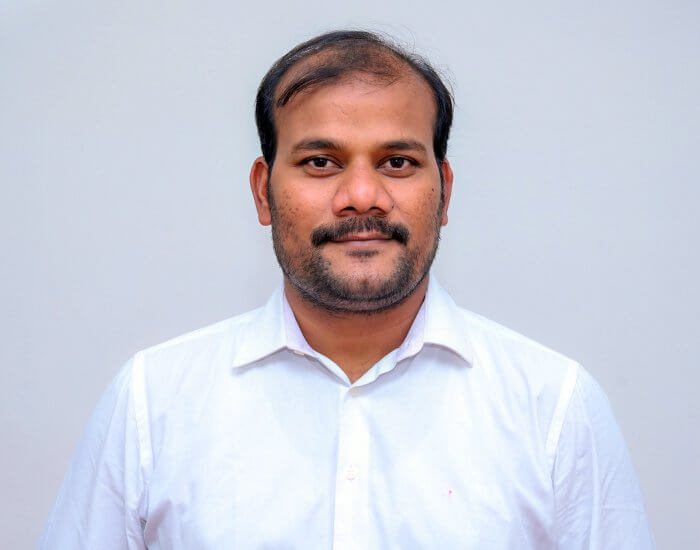
Apparao Draksharapu
PhD (University of Groningen, The Netherlands)
Associate Professor, Department of Chemistry
Office
SL-208A, Southern Laboratories,
Department of Chemistry
Indian Institute of Technology Kanpur,
Kanpur 208016
Office Phone: 0512-259-2059
Lab Office Phone: 0512-259-7708
Email: appud[AT]iitk.ac.in
Specialization
(Bio)Inorganic Chemistry
Elucidation of reaction mechanisms
Spectroscopy (Raman and X-ray Absorption Spectroscopy) & Electrochemistry
Photochemistry
Education
PhD (2013), University of Groningen, The Netherlands
M. Sc. (2009) Hyderabad Central University, India
Teaching Area
Primary teaching area would be "Inorganic Chemistry"
Selected Publications
Professional Experience
Assistant Professor, Department of Chemistry,
Indian Institute of Technology Kanpur, since Nov 2018
NIH Post-Doctoral Fellow (with Prof. Lawrence Que, Jr.) Department of Chemistry, University of Minnesota, USA. July 2015 - Nov 2018
Post-Doctoral Fellow funded by Catch Bio (with Prof. Wesley R. Browne) Stratingh Institute for Chemistry, University of Groningen, The Netherlands. Apr 2014- Jun 2015
Research Plans
"The search for renewable and clean energy sources is one of the most important challenges of the century. One of the promising approaches to circumvent the current energy crisis is to mimic nature and develop a system for artificial photosynthesis (that contain a terminal Mn(V)=O) that converts water into oxygen. In addition, other metalloenzymes (i.e., superoxide dismutase, Methane monooxygenase, Ribonucleotide Reductase etc.) containing metals in the higher oxidation state, have been employed by nature for the efficient chemical transformations. Our group strives to imitate such high valent metal species (including 3d and 4d) through spectroscopic characterization, in order to get a mechanistic understanding of the crucial processes.
Developing artificial metalloenzymes to catalyze abiological reactions has been a major endeavor for many years, but most of the times the observed rate of the synthetic mimics are lower than those of metalloenzymes, making them unsuitable for practical applications. A critical step to advance the field is to fundamentally understand what it takes to not only support the high valent metal species but also modulate the reactivities of those artificial synthetic mimics. This can be achieved by making the alterations within the ligand framework supporting the metal center in functional and structural mimetics. Hence, we employ a variety of redox active (Salens, amidate, oxazolines, BDA to name a few) and inactive ligands to modulate synthetic mimics activity to rival (or surpass!) natural enzymes.”

